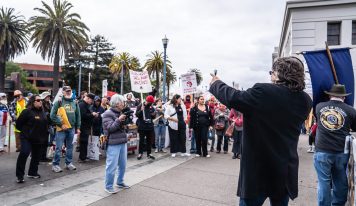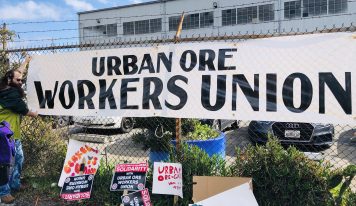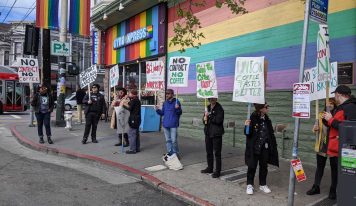Update (12-22-20): FEMA announced its funding will continue for “the duration of the COVID-19 pandemic”.
San Francisco — On Tuesday, December 15, the San Francisco Board of Supervisors unanimously passed legislation ordering the city to continue moving people off the streets and into some empty rooms for at least the next 60 days. The passage marks a victory for the over 2,300 unhoused San Franciscans currently inhabiting Shelter In Place (SIP) hotels, albeit a temporary one. The housing action passed the Budget and Finance Committee on December 9 by a 2-1, and was sent to the full Board for approval.
Two points at issue were considered here, the first of which, authored by Supervisor Haney, which would require that the hotels stay open until residents have been provided adequate housing. The focus of the ordinance would enact requirements that the low-income tenants in question do not pay more than the Housing and Urban Development (HUD) standard of 30% of their income towards rent. The organizers behind the legislation, operating under the slogan #30RightNow, have advocated for adopting the 30% permanently into the city housing considerations, as it is already a long-standing federal standard, and came as a recommendation from the city’s SRO Task Force in 2019.
Organizers also cited support for #30RightNow from supportive housing providers, including DISH, Dolores Street Community Services, Episcopal Community Services, Conard House, Community Forward, and Community Housing Partnership. The residents at risk of displacement are overwhelmingly Black, seniors, and disabled adults, checking multiple boxes of those at higher-risk of contracting COVID-19. Prior to Tuesday, up to 3,000 tenants in Single Resident Occupancy Hotels (SROs) were paying 50% or more of their income towards rent. The passage of Haney’s legislation will cap charges for housing at 30% of SRO? resident income universally.
“It’s very important to work with the residents of the buildings and help them to raise their voices to find out what’s working and not working,” said Sara Shortt, Director of Public Policy and Community Outreach for the Community Housing Partnership, a San Francisco-based organization dedicated to helping people experiencing homelessness secure housing and become self-sufficient. “We are talking to the residents to get their feedback and finding out if they are being notified accordingly. We cannot let them be marginalized; the Mayor has to understand that real people’s lives are at stake.”
The second component of the vote Tuesday prohibits the city from closing the SIP hotels until the Federal Emergency Management Agency (FEMA) officially terminates its Public Assistance Program, which covers an estimated 75% of the program’s expenses. Additionally, the ordinance will allow the city to continue its plan to transfer people out of the hotels and into housing (now subject to the 30% cap on rent), and provide the now-vacant hotels to new unsheltered residents from the street. These hotels will remain qualified for runding under FEMA’s budget plan by fitting the requirement of providing alternatives to congregate shelters.
Some city officials worry that if the city places more people in the hotels, there won’t be any housing available to send them to when FEMA ends its funding, which remains an uncertain date. Earlier this month, Mayor London Breed wrote a letter to FEMA and asked the agency to give the city more notice for when the funding would end, stating that 30 days is not adequate notice to secure long-term housing for people.
Ultimately, San Francisco intends to wind down the hotel program in 2021, aiming to close the first hotels by April and the last by October. The current residents were selected from more than 8,000 people living on San Francisco streets because they fit the federal Centers for Disease Control and Prevention’s guidelines for those at severe risk of developing complications if they contract COVID-19. Almost 500 hotel residents were slated to be displaced earlier in the fall, but public backlash and $10 million in state assistance pushed the initial closers until the end of March.
From Tuesday, Mayor Breed has 10 days to sign the legislation, which the board passed with a veto-proof majority.
Photo Credit: “Homeless, San Francisco, 2010” by Euan is licensed under CC BY-NC-ND 2.0





